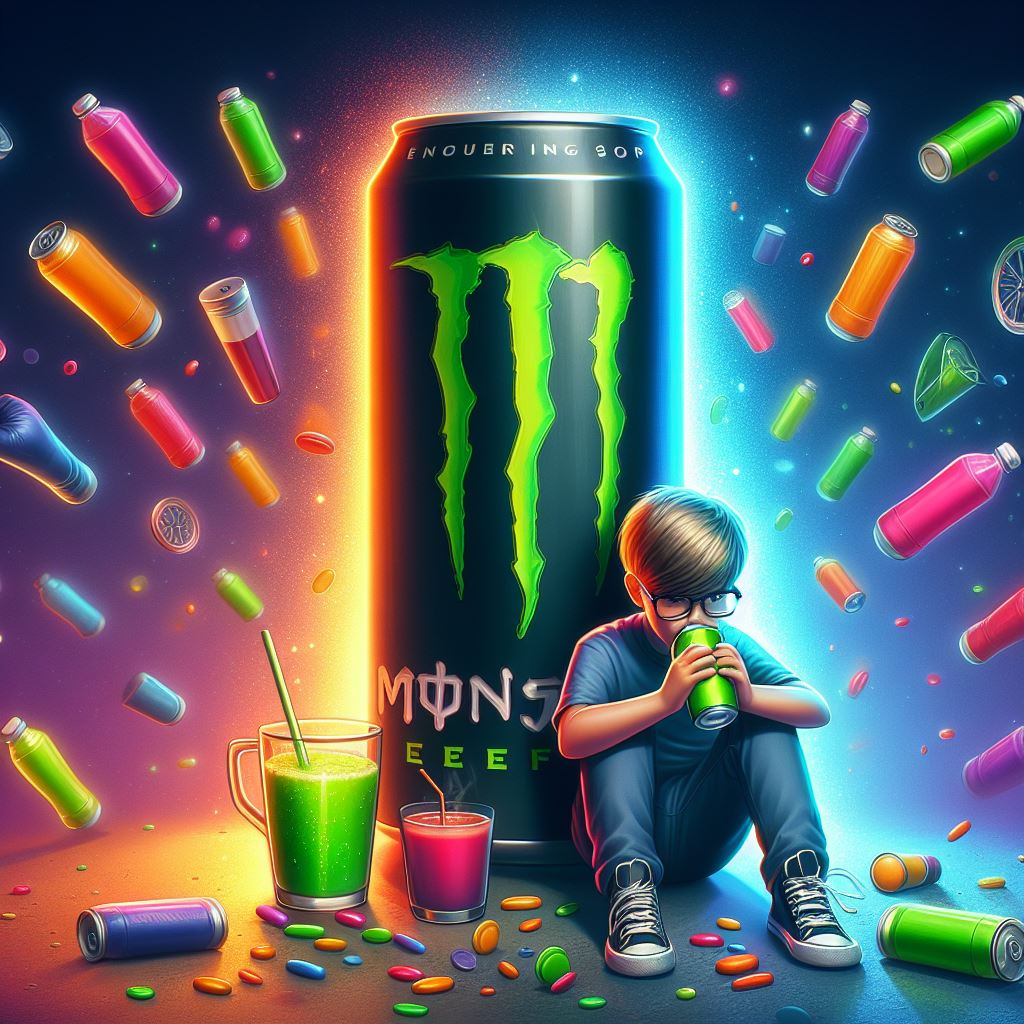Scientists have uncovered a startling connection between the consumption of high-sugar or caffeine-laden energy drinks and an increased risk of mental health issues in children.
In a groundbreaking study published in the Public Health Journal, scientists have uncovered a startling connection between the consumption of high-sugar or caffeine-laden energy drinks and an increased risk of mental health issues in children. The research, conducted by Dr. Shelina Visram and her team at Newcastle University, delved into the impact of energy drinks on both the mental and physical well-being of 1.2 million children worldwide.
The findings, based on an analysis of 51 studies, present a concerning picture of the consequences of energy drink consumption among the younger population. Dr. Visram expressed deep concern about the results, stating, “We are deeply concerned about the findings that energy drinks can lead to psychological distress and issues with mental health. These are important public health concerns that need to be addressed.”
According to the study, boys are more likely to consume energy drinks than girls, indicating a gender disparity in consumption patterns. Furthermore, the research highlights a troubling correlation between energy drink intake and risky behaviors among children, including illegal drug use and violent tendencies.
The adverse effects extend beyond behavioral concerns, encompassing academic performance, sleep patterns, anxiety, depression, and unhealthy dietary habits. The study paints a comprehensive picture of the potential harm that these fizzy beverages can inflict on the holistic well-being of young individuals.
William Roberts, representing the Royal Society for Public Health UK, emphasized the urgency of addressing this issue. “This important review adds to the growing evidence that energy drinks can harm children and young people’s physical and mental health, both in the short and long term. That’s why we need the UK Government to step up and deliver on its 2019 commitment to ban sales of energy drinks to under 16s,” Roberts declared.
The call for action becomes even more poignant in light of a specific incident in May 2023. A primary school in Newport issued a warning to parents after a pupil experienced a ‘cardiac episode,’ necessitating the pumping of their stomach following the consumption of a can of Prime Energy, endorsed by social media influencer Logan Paul.
This isolated incident serves as a stark reminder of the tangible risks associated with energy drink consumption among children. The incident prompted renewed calls for stricter regulations and a more proactive approach to safeguarding the well-being of the younger generation.
In response to these findings, health experts and advocates are urging governments and regulatory bodies to take swift action. The study not only underscores the need for comprehensive awareness campaigns but also supports the implementation of policies restricting the sale of energy drinks to minors.
As concerns mount, the focus has shifted to influencers and celebrities who endorse these products, often glamorizing them in the eyes of impressionable youngsters. Advocates argue that stricter regulations on marketing and endorsements are crucial to curb the influence these figures have on children’s choices.
In conclusion, the revelations from this comprehensive study underscore the urgency of addressing the detrimental impact of energy drinks on the mental and physical health of children. The call for governmental intervention and industry regulation has never been more critical as communities grapple with the repercussions of a seemingly innocent beverage that poses a significant threat to the well-being of the next generation.
